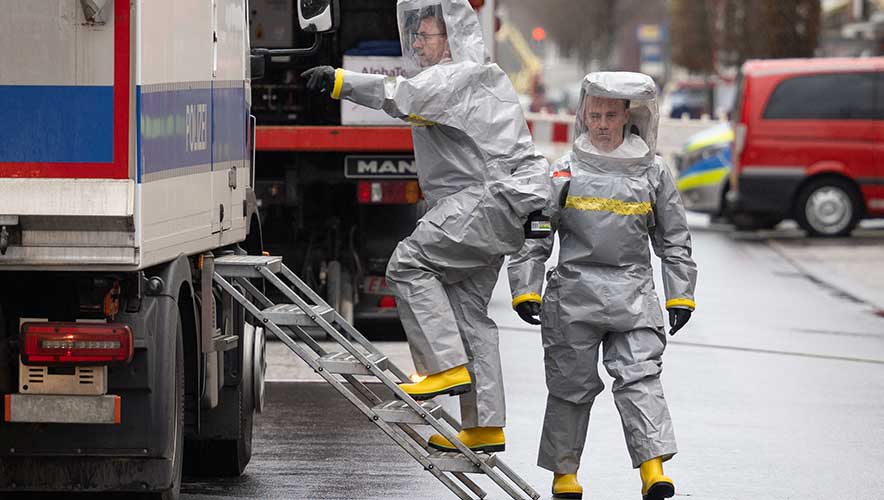German Authorities Detain Suspects After Tip on Plot to Deploy Poisonous Chemicals
German authorities acted quickly on a tip they received and detained two Iranian brothers suspected of planning a terrorist attack involving ricin and cyanide.
Authorities said the tip came from an overseas intelligence agency, with the Associated Press and other news organizations reporting that it came from the United States.
Police searched the house of one the brothers Sunday. While witnesses saw officers carrying seized evidence away from the house, the authorities said they had not found hazardous substances. On Monday, police searched garages related to one of the suspects, but have not reported if they found any ricin, cyanide, or preparatory evidence. Authorities have also not released the names of the brothers, aged 32 and 35; any information on how far along the brothers were in allegedly planning an attack; or what their potential targets would have been.
“The authorities said in a joint statement the men are suspected to have planned a serious attack motivated by Islamic extremism, for which they had allegedly sought to obtain the potent toxins cyanide and ricin,” the Associated Press reported.
Ricin is a dangerous poison derived from castor beans; even just a small amount is lethal to humans. There have not been any reported cases of mass ricin poisonings, but the tactic remains one that anti-terror authorities search for.
A CBS report said:
North Rhine-Westphalia state Interior Minister Herbert Reul urged German politicians to take better advantage of intelligence tools, such as internet monitoring capabilities, to detect and disrupt such plots more quickly.
Germany has strict data protection and surveillance laws which largely bar snooping on citizens' online activities or monitoring their movements by domestic agencies, though the country does generally respond quickly to foreign-gathered intelligence.
"The important thing is to know early on who is planning something," Reul said on a morning show of Germany's public broadcaster ARD. He said he didn't understand why Germany was neglecting opportunities offered by modern surveillance.
"We are very cautious about this in Germany," he said, adding that, thankfully, international cooperation among security authorities worked well enough to disrupt the alleged plot and catch the accused men.
Reuters reported that German domestic intelligence services estimated the current number of people in the country with extreme Islamic views is 28,290, a small decline from the previous year.
As investigators continue searching for evidence and details, the arrest underscores the value of cooperation—in this case, international agency cooperation—in recognizing and stopping extremists before they are able to do damage. Private security also has a role to play in identifying and reporting extremism that could lead to acts of terror, a topic Security Management has covered several times.












